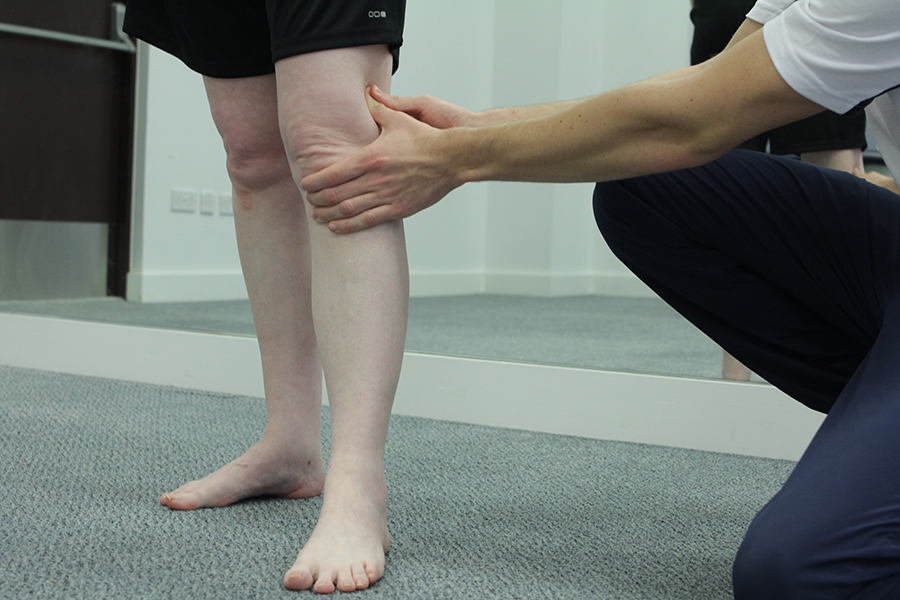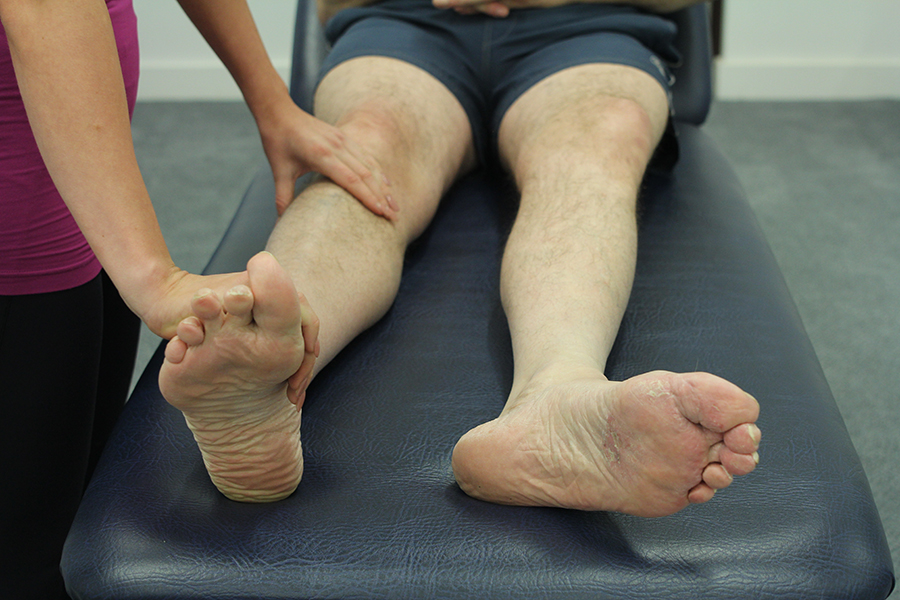Osteoarthritis of the knee
Osteoarthritis of the knee is a condition that affects the knee joint, resulting in pain and stiffness.
At Chiropody.co.uk we may be able to help you if you have osteoarthritis of the knee by providing you with an orthoses (shoe insert) that can take the pressure away from the painful knee joint by altering the forces acting upon the knee, thereby reducing your painful symptoms.
Osteoarthritis of the knee affects the surfaces of the knee joint, this is where the femur (the thigh bone) meets the tibia (the bone in the lower leg). The surfaces of the knee joint become damaged in a person who has osteoarthritis, this means that the cartilage, which acts as a protective cushion in between the femur and the tibia,and that allows the knee joint to move smoothly and freely begins to break down. The result of this damage to the cartilage is damaged bone, caused by the surfaces of the knee joint grinding against one another. As the surfaces of the knee joint grind against one another the damaged bone reacts by becoming thicker in a bid to repair itself, and the ligaments that hold the knee joint together become thicker and tighten (contract). The result of these processes is pain and stiffness.

Osteoarthritis is often the result of general wear and tear, however, some people are more at risk of acquiring osteoarthritis than others, and these include:
The signs and symptoms of osteoarthritis of the knee include:
Osteoarthritis is diagnosed based on the history and the signs and symptoms and an examination. If another condition is suspected you may be referred for further tests. To confirm the diagnosis of osteoarthritis an X-ray may sometimes be needed, although it is not always necessary.
If you have osteoarthritis in one or both knees you may benefit from podiatry. Pain caused from osteoarthritis occurs as a result of inflammation in the knee joint. This inflammation is a result of poor mechanics in the knee joint. Podiatry can help you if you have osteoarthritis of the knee by:
Further benefits can be gained through prescriptive exercises. Knee exercises will be specific to you and will aim to improve upon or maintain the movement of the knee, keeping the knee as mobile as possible so that you can continue with your daily activities.

Podiatry for osteoarthritis of the knee would involve first establishing that your condition was in fact osteoarthritis, this is done by assessing your medical history, the signs and symptoms, and an examination of the knee joint. During the examination of the knee joint the podiatrist will assess for the following:
Osteoarthritis of the knee is a condition that affects the knee joint, this is where the femur (thigh bone) meets the tibia (leg bone). A person with osteoarthritis of the knee will have pain and stiffness of the knee joint, caused by damage to the cartilage and bone. If you think you have osteoarthritis of the knee a podiatrist here at Chiropody.co.uk may be able to help relieve you of any painful symptoms caused by your arthritis using non-invasive techniques such as orthoses (shoe inserts). Orthoses can help by altering the forces acting on the knee, which can reduce pain and increase knee function.
To arrange an appointment with one our podiatrists please Email office@chiropody.co.uk, or call 0330 088 4222.
At Chiropody.co.uk we may be able to help you if you have osteoarthritis of the knee by providing you with an orthoses (shoe insert) that can take the pressure away from the painful knee joint by altering the forces acting upon the knee, thereby reducing your painful symptoms.
What is osteoarthritis of the knee?
Osteoarthritis of the knee affects the surfaces of the knee joint, this is where the femur (the thigh bone) meets the tibia (the bone in the lower leg). The surfaces of the knee joint become damaged in a person who has osteoarthritis, this means that the cartilage, which acts as a protective cushion in between the femur and the tibia,and that allows the knee joint to move smoothly and freely begins to break down. The result of this damage to the cartilage is damaged bone, caused by the surfaces of the knee joint grinding against one another. As the surfaces of the knee joint grind against one another the damaged bone reacts by becoming thicker in a bid to repair itself, and the ligaments that hold the knee joint together become thicker and tighten (contract). The result of these processes is pain and stiffness.

What causes osteoarthritis of the knee?
Osteoarthritis is often the result of general wear and tear, however, some people are more at risk of acquiring osteoarthritis than others, and these include:
- Those who are overweight
- Those who have previously injured the joint
- People over the age of 40
- Females
- Those who have a family history of osteoarthritis
What are the signs and symptoms of osteoarthritis of the knee?
The signs and symptoms of osteoarthritis of the knee include:
- Pain
- Stiffness
- Grinding sound when straightened and flexed
- Swelling
- Loss of muscle tone around the knee
- Limited range of movement
How is osteoarthritis of the knee diagnosed?
Osteoarthritis is diagnosed based on the history and the signs and symptoms and an examination. If another condition is suspected you may be referred for further tests. To confirm the diagnosis of osteoarthritis an X-ray may sometimes be needed, although it is not always necessary.
What are the benefits of podiatry for osteoarthritis of the knee?
If you have osteoarthritis in one or both knees you may benefit from podiatry. Pain caused from osteoarthritis occurs as a result of inflammation in the knee joint. This inflammation is a result of poor mechanics in the knee joint. Podiatry can help you if you have osteoarthritis of the knee by:
- Improving upon the mechanics of the knee joint
- Unloading the part of the knee that is being overloaded due to poor mechanics
- Reducing inflammation
- Reducing pain
- Increasing range of motion at the knee
- Improving muscle strength and flexibility
Further benefits can be gained through prescriptive exercises. Knee exercises will be specific to you and will aim to improve upon or maintain the movement of the knee, keeping the knee as mobile as possible so that you can continue with your daily activities.

What would podiatry for osteoarthritis of the knee involve?
Podiatry for osteoarthritis of the knee would involve first establishing that your condition was in fact osteoarthritis, this is done by assessing your medical history, the signs and symptoms, and an examination of the knee joint. During the examination of the knee joint the podiatrist will assess for the following:
- Knee pain and tenderness
- Stiffness
- Range of movement
- Knee stability
- Crepitus (grinding/crunching sound)
- Knee swelling
- Orthoses
- Strengthening Exercises
- Stretching Programmes
- Range of Movement Exercises
- Advice and education
- Footwear review
- Anti-inflammatory advice
- A Knee brace
- A walking stick
Summary
Osteoarthritis of the knee is a condition that affects the knee joint, this is where the femur (thigh bone) meets the tibia (leg bone). A person with osteoarthritis of the knee will have pain and stiffness of the knee joint, caused by damage to the cartilage and bone. If you think you have osteoarthritis of the knee a podiatrist here at Chiropody.co.uk may be able to help relieve you of any painful symptoms caused by your arthritis using non-invasive techniques such as orthoses (shoe inserts). Orthoses can help by altering the forces acting on the knee, which can reduce pain and increase knee function.
To arrange an appointment with one our podiatrists please Email office@chiropody.co.uk, or call 0330 088 4222.
Save 5% by booking an appointment online.

Find your nearest clinic
We have clinics located throughout the North West. We also provide a home visit service.
Find out more »

No waiting lists!
Tired of waiting for treatment? Be seen by a podiatrist today!
Find out more »

Not sure how we can help?
Speak to a podiatrist to find out how we can help. Call us on 0330 088 4222.
Find out more »
We work with:

Individuals

Organisations

Health professionals
Get in Touch!
0330 088 4222
If you would like to speak to one of our specialists then please complete this form.
We are open 7 days a week








